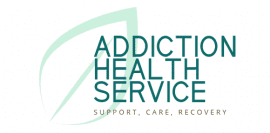All drugs have some kind of effect on your mental health. They can affect the way you see and experience things, your mood and your behaviour. They change the balance of chemicals that help your brain to think, feel, create and make decisions. There is often an overlap between mental health disorders such as mood, anxiety, depression or schizophrenia and the misuse of alcohol or drugs.
Why do mental health disorders co-exist with substance use?
When you have both a substance abuse problem and a mental health issue such as depression, bipolar disorder, or anxiety, it is called a co-occurring disorder or dual diagnosis. Dealing with substance abuse, alcoholism, or drug addiction is never easy, and it’s even more difficult when you’re also struggling with mental health.
How does addiction affect mental health?
According to the Mental Health Foundation 16.6% of adults in England report drinking to hazardous levels, while 1.2% report levels which indicate probable dependence on alcohol. 3.1% of adults in England show signs of drug dependence and men (4.3%) are more likely to be dependent on illegal drugs than women (1.9%).
UK Government statistics show that an estimated 589,000 people are dependent on alcohol in England and about a quarter of them are likely to be receiving mental health medication; mostly for anxiety and depression, but also for sleep problems, psychosis and bipolar disorder. NHS statistics show that there were 7,545 hospital admissions with a primary diagnosis of drug-related mental health and behavioural disorders.
What mental health illnesses or disorders can alcohol cause?
Regular, heavy drinking interferes with chemicals in the brain that are vital for good mental health. So while we might feel relaxed after a drink, in the long run, alcohol has an impact on mental health and can contribute to feelings of depression and anxiety, and make stress harder to deal with
What is the relationship between addiction and bipolar disorder?
Evidence is emerging that shows that bipolar patients who also abuse drugs or alcohol have an earlier onset and worse course of illness compared with those who do not. They are more likely to experience irritable and dysphoric mood states, increased treatment resistance, and a greater need for hospitalization
Is there a link between autism and addiction?
Addiction is a common but treatable condition. Both autistic people and non-autistic people experience addiction, but the reasons for their addiction may be different.
People can develop an addiction if they are struggling to cope with everyday life, have particular difficulty in their lives or have a family history/ live with others with addiction.
For autistic people, there may be other reasons too. Social situations and sensory differences can make autistic people feel stressed and anxious.
Does having an addiction mean you are mentally weak?
No, having an addiction doesn’t mean you’re mentally weak.
Research and studies have shown that addiction is a complex disease. It changes how the brain works and over time, makes it dependent on the substance to function. Failure to take the addictive substance often results in unpleasant withdrawal effects, some of which are serious and even fatal.
Overcoming addiction and remaining clean and sober isn’t just a matter of will. Those battling addiction require professional, and sometimes medical, assistance to quit using and turn their lives around. This happens gradually and is often a lifelong journey and process.
Reaching Out For Help
If you feel you may have substance abuse or dependency issue please contact us. Otherwise, you can contact us via our Facebook page, our Twitter or our Instagram

